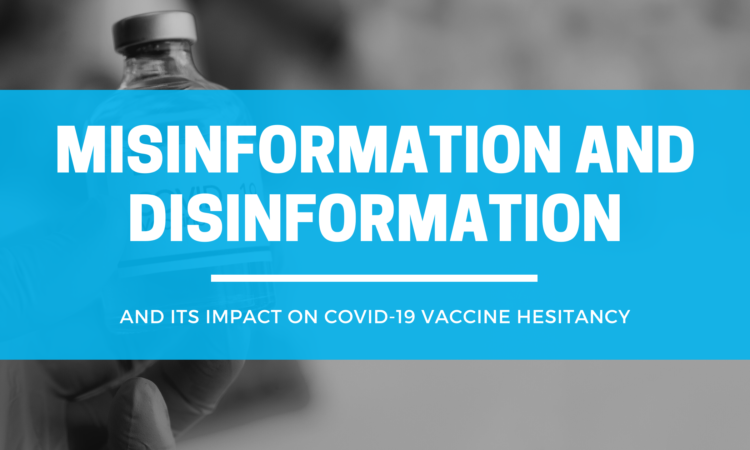In Small Developing States (SDS) like Grenada in the Eastern Caribbean, the covid-19 pandemic has seen a surge in conspiracy theories and misinformation about the virus, which apparently is causing a high level of vaccination hesitancy. Having considered Grenada’s religious, social and political culture, I argue that trust in state authorities has not been given sufficient attention when considering the state authorities inability to overcome the spread of conspiracy theories and vaccine hesitancy among the population—a situation that impedes their ability to control the spread of the virus.
The conspiracy theories and vaccine hesitancy were more effective than the authorities in convincing the majority of people to get vaccinated and adhere to covid 19 protocols. Invariably any new advanced medical technologies, particularly the way people think about medicine in Grenada, are tied to the religious and political culture, but people are willing to take advice from the authorities if that trust is strong.
Where there is a lack of trust, a more decentralized educational programme may be required if persons are to buy -into the importance of getting vaccinated. This can be done by using both the traditional ways of communication and the modern technologies by using various social media platforms. With misinformation and disinformation being spread over social media understanding the cultural, social, and political aspects of countries I would argue, can be a way to address the pandemic more effectively. The messenger is as important as the messaging, what is meant by this is, the person (s) delivering the message is key and must have the social and professional skills and an understanding of culture in the broadest context and of course one who the population trust. Persons in the medical fraternity can speak on behalf of the state authorities (government) and as time progresses leaders in the various communities.
According to the United Secretary-General as cited by the WHO (11 May 2020), there need to be policies in place or actions plans that manages misinformation and disinformation and have systems that disseminate accurate information that is science and evidenced base to all, and those that are most vulnerable while also respecting individuals’ rights and freedom. It must be noted that vaccination has been part of the Caribbean historically and it is one of the prerequisites, a child needs for him or her to start pre-school. Hence, it may not be that persons do not want to be vaccinated but it may be the information or lack thereof that is causing the hesitancy.
However, information overload can also have a negative impact on today’s decision-making processes. The question is how can we find that balance? From a sociological perspective, one can examine how information has been passed on historically in the Caribbean and then explore how misinformation and disinformation about vaccination have been spread through social media so that small nations can tackle the Covid-19 pandemic. It can be posited that a transdisciplinary or multidisciplinary approach can help fight and curb the spread of this virus and maybe increase vaccination uptake.


I would like to add to this discussion.
Indeed, it appears as if the state of authorities within the region and not just Grenada has not considered the sociopolitical aspect of mistrust and hesitancy towards European policies and or agenda. Take for example the mental effects on Grenadians from the Revolution. Depending on whom you ask to recount this phenomenon, they would view the ‘American Rescue’ as an invasion seated with great distrust. Upon the exit of the ‘American Invasion,’ while one may recount ‘freedom’ others saw it as a shift in social welfare and political structure (conforming to Western Standards) and a loss of their cultural heritage (the abolishment of the use and practice of French in schools and sooner the wider Grenadian community). This along with the past and current actions of leadership and Grenada being a traditional society have caused authoritarian distrust to take root within society.
Subsequently, it led to the masses being wary of quick and sudden policies being enforced. While research has proven that eradicating miss information on the COVID-19 vaccine may somewhat combat this mistrust, the pivotal question is whom will we send? What authoritarian figure, prominent scientific or educational institute in Grenada can be entrusted with this task? In light of recent events, the list is somewhat none existence. Credible institutions (who should have been carrying out this duty) cannot be entrusted with such a task as their COVID-Policies have left a bitter taste in the mouths of many. Due to the fact that their members and affiliates are forced to comply or suffer the consequences.
Let’s go back to the start of COVID. Grenada boasts about having the best medical school in the region, yet when COVID hit the medical students myself included, was shipped out as Grenada’s health care system cannot handle the blunt of us students getting sick. So how then can we then have the best medical school and one of the poorest healthcare systems in the region? Why aren’t there any concrete COVID policies enforced? Why haven’t the Government made the vaccine mandatory? The bigger question is do they really care about the people or do they care about the kickbacks?
To address the social aspect of dispersing information within the region especially a traditional society like Grenada having a holistic approach to formulate a plan that best suits the social state of the territory is necessary. This would encompass not entirely neglecting the global standards but having persons who are honest and are from various backgrounds such as behaviourism, sociology, psychology etc. come together with health officials to formulate COVID-Policies.